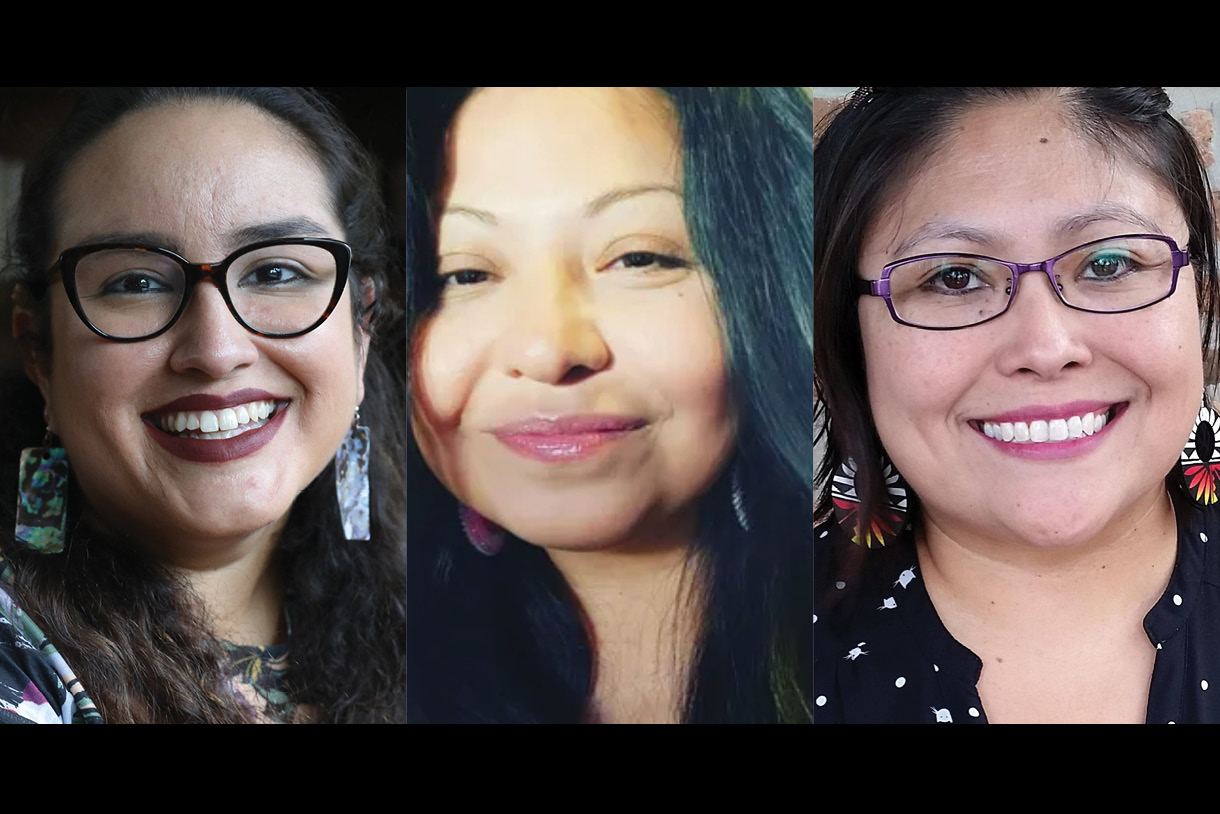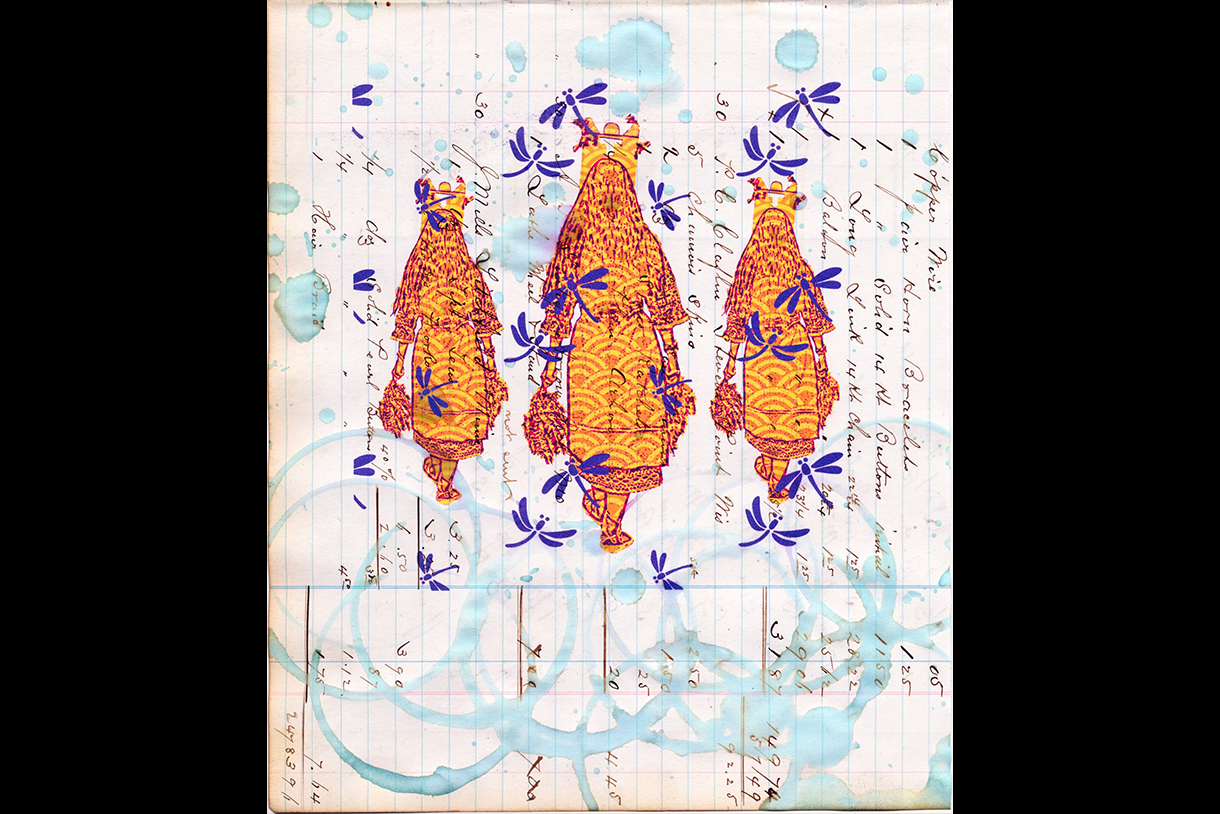‘Listening to Indigenous Voices’ Series Kicks Off
Columbia College Chicago is kicking off its “Listening to Indigenous Voices” series this week.
The three-event series will explore how to center Indigenous voices in various contexts including Indigenous contributions to art and the Indigenous experience. The goal of the series goes beyond bringing experts to campus. The group of faculty, staff, and students who organized the series hope there will be long-lasting impacts on curricula and how artists view their fields.
“I think all three of our colleagues visiting our campus for these series of events are wonderful, not to just add a voice, but their voices actually challenge and transform the narratives that are so dominant still in many of our fields,” Assistant Professor in Art and Art History and series co-organizer Onur Öztürk says.
The first event, Reimagining Museums with Indigenous Voices, welcomes Meranda Roberts, an Indigenous curator, researcher, and advocate, on March 17.
The series continues in April. On April 20, the Efroymson Creative Writing Reading Series welcomes New York Times best-selling, award-winning Indigenous author Terese Mailhot. The next day, former Columbia student and Indigenous artist Debra Yepa-Pappan will lead the event Artists and Museums: Interventions and Collaborations.
These events were made possible thanks to grants from the offices of Academic Diversity, Equity and Inclusion, and Student Diversity and Inclusion. The team involved in organizing the grant proposals and events come from across the college.
Some members of the group first worked together to bring Chicago writer Dawn Turner to campus last spring. That success inspired them to keep going.
“I think one of the things I really love about Columbia is there is a great group of faculty members who would like to collaborate on initiatives like this,” Öztürk said.
One lesson the group learned from the Turner event that they’re carrying into this series is make the lessons last past the day of the event.
“We want this to be intertwined with our classes,” Öztürk says. “We are working with our colleagues teaching across the college and we really want to make sure these events also have some space in individual classes.”
And they don’t want the impact to be limited to this semester. Although it may be too late in the semester for some classes to alter their syllabus, these lessons can be used for years to come.
“It’s a couple of people doing work that can then benefit a number of people,” Professor in Art and Art History and co-organizer Joan Giroux says. “This is part of the college archive and can be used as a resource. The next time professors teach a class that’s relevant, then they know that these resources exist, that they can pull that in from the beginning.”
Bringing Indigenous voices, history, and perspective into the classroom is essential to a holistic, truly diverse education.
“I’m so pleased for our Indigenous students that our DEI Programming team has been able to partner with the Efroymson Family Foundation to amplify the voices of Indigenous writers, artists, and curators this semester,” English and Creative Writing Department Chair Jeanne Petrolle says. “Terese’s writing and Debra’s imagery are soul-searing, and Meranda’s activism is critical to social justice. We plan to continue with this kind of programming next year."
Columbia’s location in Chicago, which is home to the third-largest urban Indigenous population in the country according to the American Indian Cultural Center of Chicago also makes centering these stories particularly important.
Carolina Ayala is an Indigenous senior in the English and Creative Writing department and worked with the team to secure the grants to make the series possible.
“I think that with these artists coming onto campus, it can help us decolonize our things. It can help us decolonize our academic structures, how we approach things in the classroom, how our classrooms are set up,” Ayala says. “With the presence of more Indigenous artists, we might be able to start addressing these things that are so integral to our teaching styles and to our learning styles and start going towards a more holistic, a more environmentally friendly, a more Indigenous friendly approach towards all this education, all this art.”
The first speaker in the series, Roberts, agrees. She will present her scholarly and curatorial work on critically engaging with museums for harmful narratives they have created about Indigenous people, share insights from her recent work, and meet with Ozturk’s Creative Communities: Rethinking Museums class. Roberts and Yepa-Pappan were part of the team who curated and guided the Field Museum of Natural History’s recently installed, permanent exhibition “Native Truths: Our Voices, Our Stories.”
“I want people to learn that we are still here, we will always be here,” Roberts says. “Learn from us and with us, not just about us. Laugh with us too! Enjoy what makes our cultures beautiful. Have a good heart and be patient.”
Ayala is looking forward to more students being exposed to and understanding Indigenous cultures and impacts on art and seeing themselves represented. They are particularly eager to see Mailhot on her visit to campus.
“I'm so excited. I am vibrating in my seat waiting because I’ve never been able to talk to an Indigenous artist on this level,” Ayala says. “Sitting in class, having an artist who has a similar background is representation, I’m able to say like, ‘Oh my God, you’ve made it. You’ve gotten there. You’re where I want to be.’ It’s amazing.”
As more members of the Columbia community come to learn and understand the themes that will be discussed in the series, organizers hope that other Indigenous students will feel like Ayala and that other attendees will come away with a broader understanding and appreciation of art and the history of their respective fields.
“We need to think about a transformative way of looking at our fields,” Öztürk says. “And that would require not just expanding the voices, but also think about new ways of giving equal weight to those voices.”
The following members of the Columbia College Chicago community made this series possible:
Jeanne Petrolle
Joan Giroux
Onur Öztürk
Carolina Ayala
Jay Bigboy
Anakaren Pinto
Charee Mosby-Holloway
Danielle Alexander
Jessica Meharry
Jeff Spitz
Rich King
Sharon Bloyd-Peshkin

